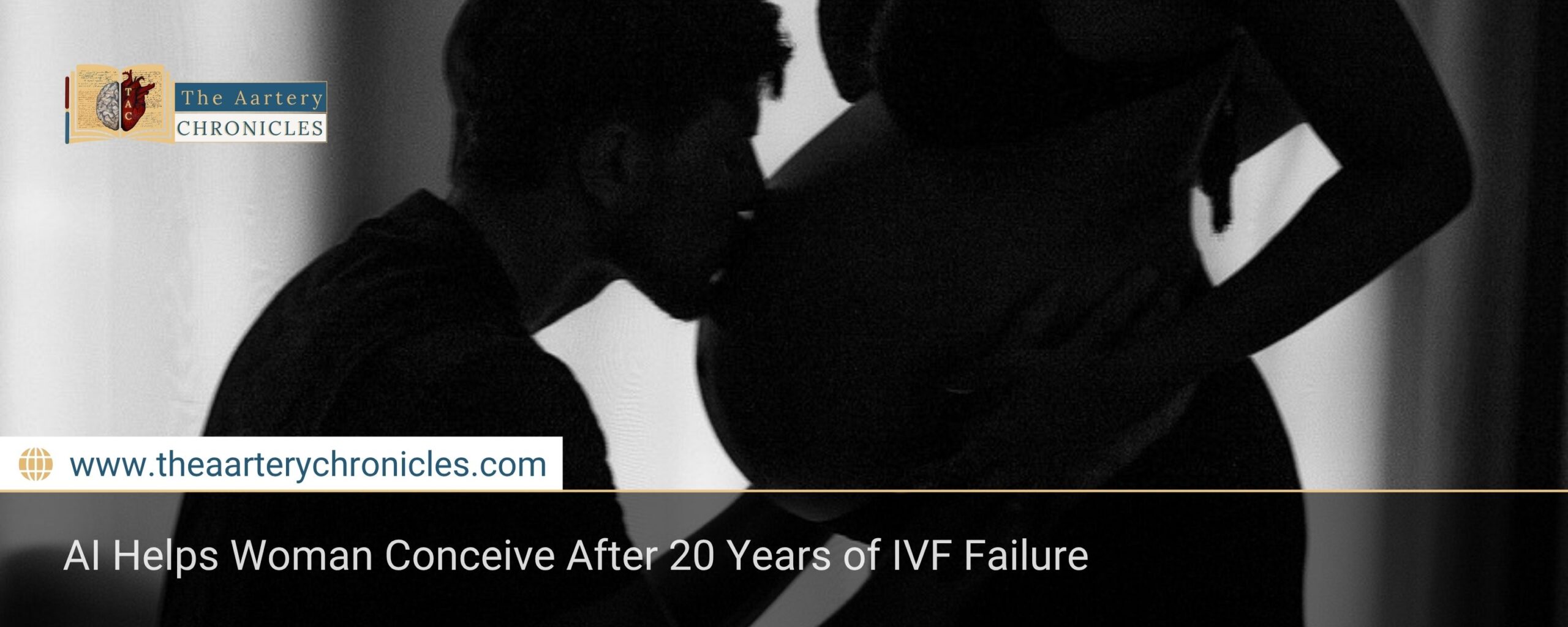

AI Helps Woman Conceive After 20 Years of IVF Failure
After 20 years of heartbreak, disappointment, and repeated IVF failures, a couple from New York has finally conceived their first child. Thanks to an advanced AI-powered fertility tool, developed at Columbia University, this case marks a historic moment in reproductive medicine, especially for couples facing male infertility.
A Long Journey of Failed Treatments
For most couples, infertility can be a deeply emotional and exhausting journey. This particular couple spent nearly two decades trying to have a baby, undergoing 15 failed IVF attempts, multiple surgeries, and consultations with top fertility experts across the world. Despite every effort, they kept hearing the same disheartening news: natural conception was impossible.
The Underlying Cause: Azoospermia
Doctors eventually diagnosed the husband with azoospermia, a rare condition where no sperm is present in the ejaculate. This condition affects about 1 in 100 men and contributes to 10–15% of male infertility cases.
This couple’s case involved non-obstructive azoospermia, which is often more difficult to treat.
Understanding Azoospermia
Azoospermia often goes unnoticed until couples try to conceive. It can be caused by:
- Genetic conditions
- Hormonal imbalances
- Cancer treatments (chemotherapy/radiation)
- Toxins or drug exposure
- Structural problems, like varicoceles
Traditional treatments for azoospermia include surgical sperm retrieval or donor sperm, both of which come with physical and emotional challenges
Introducing STAR: A New Hope in Fertility Treatment
Just when the couple thought they had exhausted all their options, they met Dr. Zev Williams. His team had been developing a cutting-edge technology called STAR, short for Sperm Track and Recovery.
How Does STAR Work?
STAR is a powerful tool that uses artificial intelligence (AI), advanced imaging, and microfluidic technology to locate even the tiniest number of healthy sperm, something traditional lab methods often miss. Here’s how the process works:
- First, a special chip helps separate and filter the semen sample.
- Then, a high-speed camera captures millions of microscopic images.
- Finally, an AI system carefully scans these images to detect sperm cells that are extremely rare or difficult to see.
Dr. Williams compared it to “finding a needle in a thousand haystacks”—but STAR can do it in just a few hours, with incredible accuracy and gentleness. This means the retrieved sperm are still healthy enough to be used in IVF.
From Zero to Pregnant: A Medical Miracle
Before STAR, lab technicians spent two full days scanning the husband’s sample and found nothing. But within one hour, STAR identified 44 healthy sperm enough to attempt IVF without any additional hormonal treatments or surgeries.
In March 2025, the couple underwent another IVF cycle. This time, it worked. The woman is now pregnant for the first time in her life.
Why This Is a Game-Changer
This success is more than just a personal victory it represents a shift in the future of fertility treatment, especially for men once told they had no chance.
Here’s what makes STAR revolutionary:
- Non-invasive: No surgery is required to extract sperm.
- Accurate: Detects what human eyes and experts often miss.
- Hopeful: Offers new options for couples with “zero” chances.
According to the World Health Organization, infertility affects 1 in 6 people globally, with male factors accounting for about 50% of cases. STAR could redefine what’s possible for many of them.
The Future of AI in Reproductive Health
While STAR is currently focused on detecting sperm, experts believe AI will soon transform many other aspects of fertility care. Potential future applications include:
- Identifying the highest-quality eggs and embryos
- Predicting the success rate of IVF cycles
- Customizing treatment plans based on individual needs
- Spotting subtle abnormalities in reproductive tissues
Dr. Williams adds, “Processes are happening in the body we couldn’t observe before. With AI, we finally can.”
Conclusion
This case is not just a medical success it’s a testament to resilience, technology, and innovation in healthcare. It gives hope to thousands of couples worldwide who are battling infertility.
With AI tools like STAR, the future of fertility care looks more precise, personalized, and filled with possibilities.
Source: Inputs from various media Sources

Priya Bairagi
Reviewed by Dr Aarti Nehra (MBBS, MMST)
I’m a pharmacist with a strong background in health sciences. I hold a BSc from Delhi University and a pharmacy degree from PDM University. I write articles and daily health news while interviewing doctors to bring you the latest insights. In my free time, you’ll find me at the gym or lost in a sci-fi novel.








